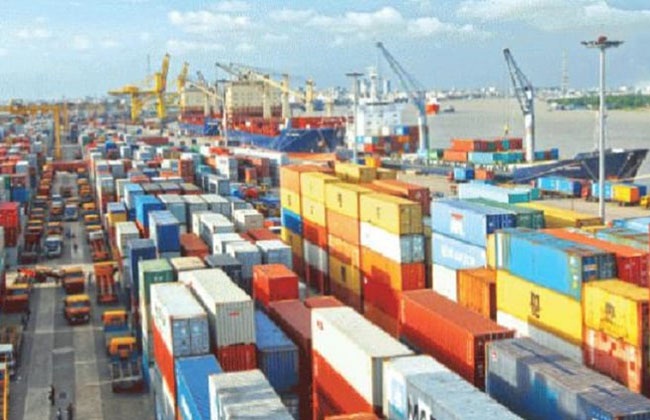
Bangladesh exported goods worth $27.22 billion in the first six months till December of the current fiscal year 2022-23 amid a growing crisis of foreign exchange, according to an official report.
The country received $10.37 billion from exports only in the last two months (November and December), which is the highest ever export earnings in two months.
According to the Export Promotion Bureau (EPB), Bangladesh exported goods worth $5.37 billion in December, which is also the highest single-monthexport earnings.
In November 2022, the export earnings crossed $ 5 billion for the first time. In December, the export earnings made another record.
The export earnings in December 2021 were $4.9 billion. The export grew by 9.33 percent year-on-year in December this year.
The readymade garment contributed the highest in the export earnings as usual.
The export earnings from the ready-made garments increased by 15.35% year-on-year in December from $4.04 billion in December 2021 to $4.67 billion in December this year.
Faruque Hassan, President of Bangladesh Garment Manufacturers and Exporters Association (BGMEA), said the apparel sector has seen good growth in December due to a unit price hike.
The contribution of the apparel sector soared due to good prices and the increase in the ratio of high-end products in recent times, he said.
He also said that Bangladesh witnessed a rush of orders after the post-Covid-19pandemic period due to theincreased credibility of the country keeping factories operational during the pandemic.
He said now garment makers are exporting jackets at prices above $40 per piece, against previous $30.
The export earnings were $3.91 billion and $4.36 billion in September and October this year. The export was registering a 14.70 percent rise to bag $3.98 billion year-on-year in July, thanks to the good performance of the apparel sector.
Bangladesh bagged $4.60 billion through exports in August, registering a 36.18 percent year-on-year growth while it slipped by 6.25 percent (Y-o-Y) to $3.91 billion in September as the flow of orders for garments slowed amid higher inflation and the Russia-Ukraine war.


